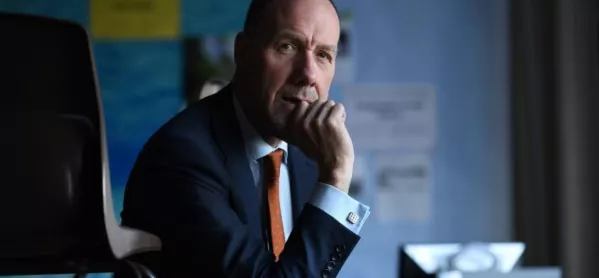Less popular subjects could “largely disappear” from the state education system as cost pressures are making it difficult to sustain them, a union leader has warned.
Such subjects may become the “preserve” of those who can afford private schools and clubs, warns Geoff Barton, general secretary of the Association of School and College Leaders (ASCL).
The comments come the day before GCSE students get their exam results on Thursday.
Mr Barton said it was “worrying” to see the number of GCSE entries to several creative arts subjects, as well as design and technology, fall this year.
Statistics released by the exams regulator Ofqual show entries in subjects, including drama, music, and design and technology, fell this year compared to 2021 entries.
And Mr Barton suggested the changes were ”driven by government performance measures that favour traditional academic subjects at the expense of other subjects”, and funding pressures, “which make small classes difficult to sustain”.
He added: “Schools now face huge extra cost pressures because of rising energy costs and pay awards for which there is no additional government funding.
“This will make it even more difficult to sustain small-entry subjects and there is a danger that some of these subjects will largely disappear from the state education system and become the preserve only of families who are wealthy enough to afford private schools and clubs.
“The government must make state education a priority and fund it properly.”
Speaking on Good Morning Britain yesterday, Mr Barton warned that schools might cut courses that have fewer pupils in them in response to funding pressures.
He said that this might include courses such as GCSE music or A-level German.
His comments come a week after he expressed “severe concern” about the continuing decline in English entries at A level.
Schools are currently facing a raft of financial pressures, including rocketing energy bills.
The Department for Education announced last month that teachers who have been in the profession for more than five years will get a 5 per cent pay rise in September 2022 - an increase on the 3 per cent initially proposed by the government.
However, heads’ unions have criticised the “unfunded” rise, warning that it will put some schools’ budgets into deficit.
Researchers are also warning that spending on education will “barely increase” in real terms over the next three years because of the sustained effects of high inflation.
A DfE spokesperson said: “We recognise GCSE students have faced an unprecedented level of disruption over the pandemic, which is why we put in place adaptations to support them in sitting exams this year including advance information of exam content in some subjects and a grading approach that will ensure overall grades are higher than in 2019.
“We’ve also invested nearly £5 billion to help children and young people recover from the impact on their education from the pandemic, including £1.5 billion towards the National Tutoring Programme, through which over 2 million courses have already started.”




